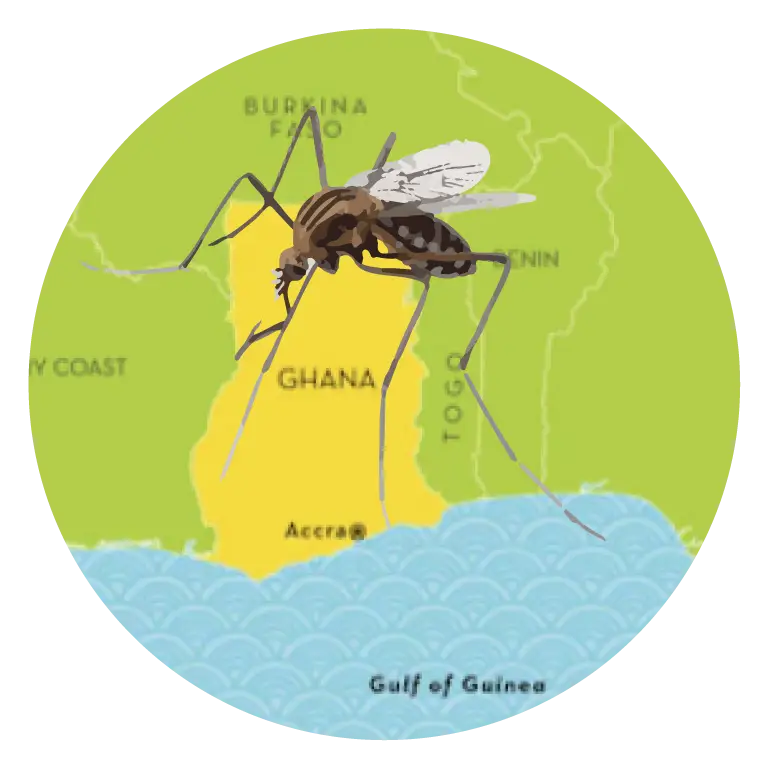Rosa’s project—which focused on analyzing human samples from endemic regions in the tropics—has generated substantial preliminary data to address neglected infectious diseases in West Africa. As a current Staff Scientist at the Bernhard Nocht Institute for Tropical Medicine in Hamburg, Germany, Dr. Gálvez is concentrating on understanding the co-circulation, immunity, and clinical outcomes of dengue and Zika viruses in Africa. She is also building on her preliminary data from her SPARK project to enhance surveillance and research on neglected and emerging arboviral infections in Africa.
2023 Tullie and Rickey Families Spark Awards Winner
Rosa Isela Gálvez, Ph.D.
What if immune “crosstalk” could make malaria partially protective against dengue fever?
Funded: January 2023
Funded by: The generosity of various donors
What was the goal of your SPARK project?
Forty percent of the world’s population lives in tropical regions where mosquitoes and other arthropods, such as ticks, spread disease. People in these regions often suffer from several of these “arboviral” infections simultaneously, posing complex challenges for their immune systems. Unlike the controlled settings of laboratories, the intricacies of real-world co-infections cannot be fully replicated experimentally; therefore, to understand these dynamics, I analyzed human samples from these areas. In West Africa, children face high mortality rates due to malnutrition, respiratory infections, diarrheal diseases, and especially malaria. The goal of my SPARK project was to challenge the assumption that dengue has minimal impact in Africa by exploring the immune reactions between malaria and dengue, despite the low reported incidence of dengue in the region.
SPARK project results
The impact of co-infections on disease severity and mortality is not well understood. Co-infections affect both innate and adaptive immunity and can complicate immune responses. I wanted to determine if co-infections worsen disease severity or modulate immune responses positively. To access patient blood samples, I established collaboration between LJI and the Bernhard Nocht Institute for Tropical Medicine in Hamburg. I then analyzed 422 samples from children with acute malaria. I found that 13.5% of these children had also been exposed to dengue viruses. My findings challenge the belief that flaviviruses have minimal impact in West Africa and highlight the need for better surveillance and diagnostics in the region.
What’s next for this project?
I am using my SPARK project results as the basis for two applications with major consortium funding. The first, under the Wellcome Trust Infectious Disease Award, is the DEZIWA project, focusing on dengue and Zika viruses in Africa. As lead PI for the immunology work package, I will work in Mali and Burkina Faso to generate data for public health interventions. The second project, ARBOVIR, funded by the German-African Cooperation in Infectiology, aims to enhance surveillance and research on arboviral infections in Africa. Collaborating with the Bernhard Nocht Institute and the Kumasi Centre, this project will implement rapid diagnostics and train health technicians in rural Ghana.
What’s next for Rosa?
Over the past year, my career has evolved to integrate both teaching and research. This transition allows me to inspire and mentor students while continuing my work in infectious diseases. Along with teaching, I am actively involved in collaborative research grant applications with colleagues in Hamburg and internationally. My goal is to expand research into adaptive immunity in infectious diseases and establish a research base in South America to advance this critical field further.


